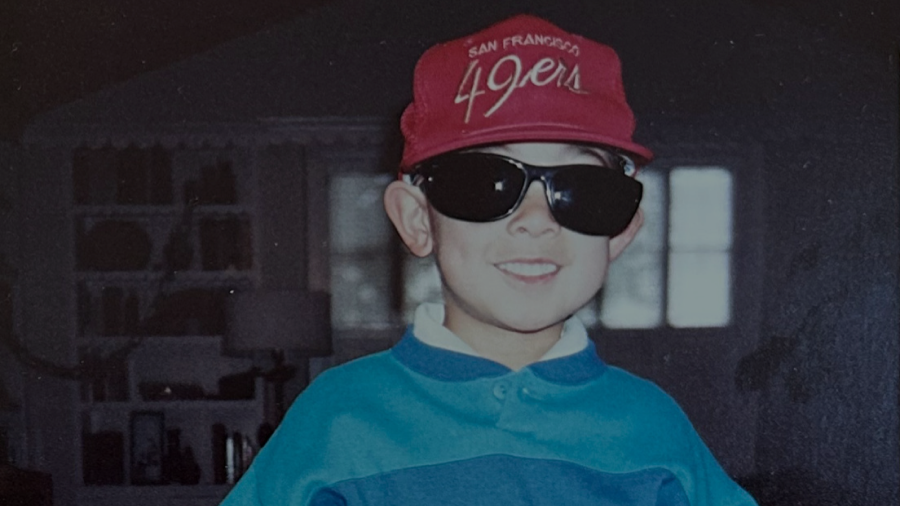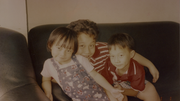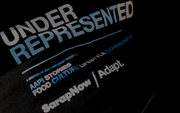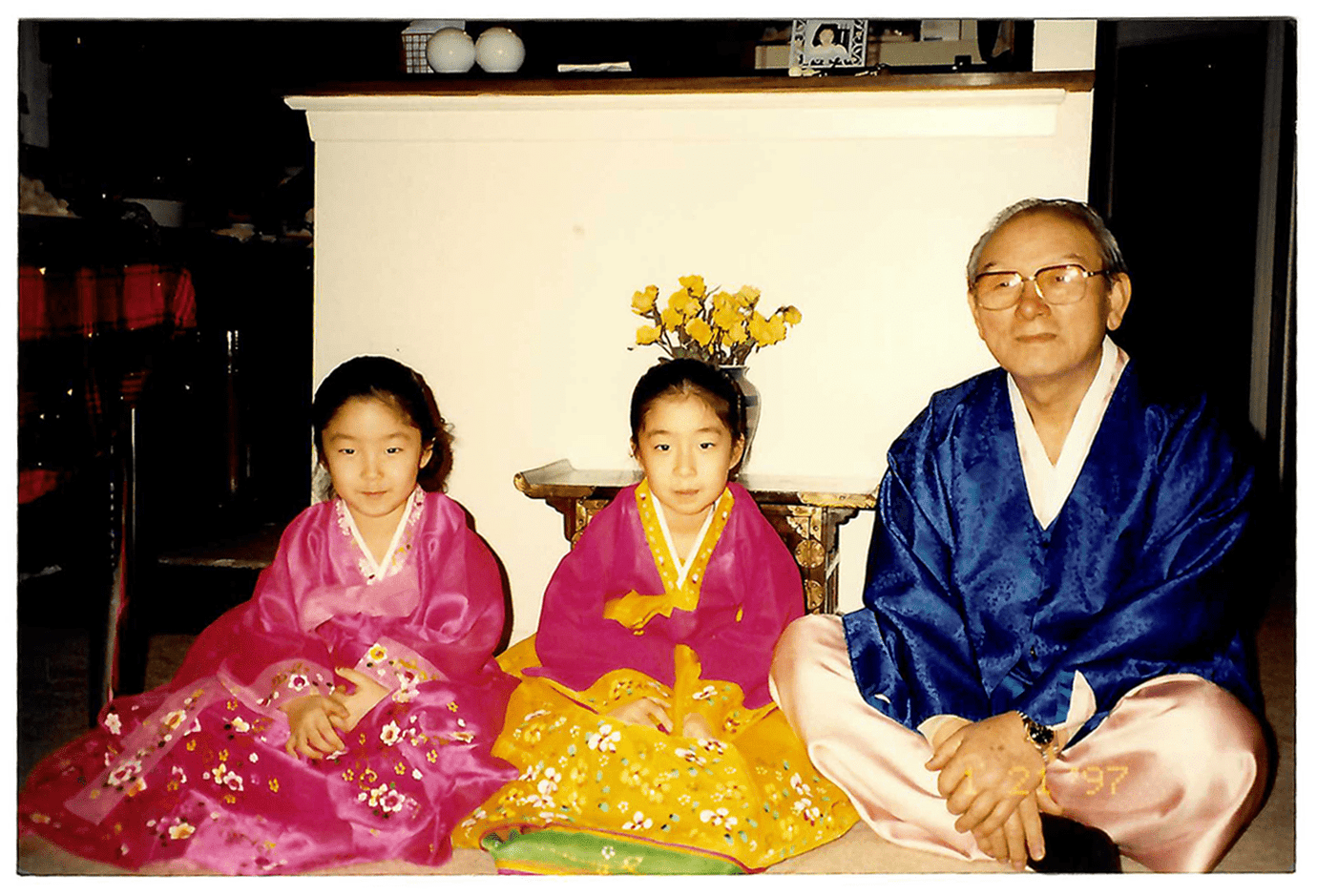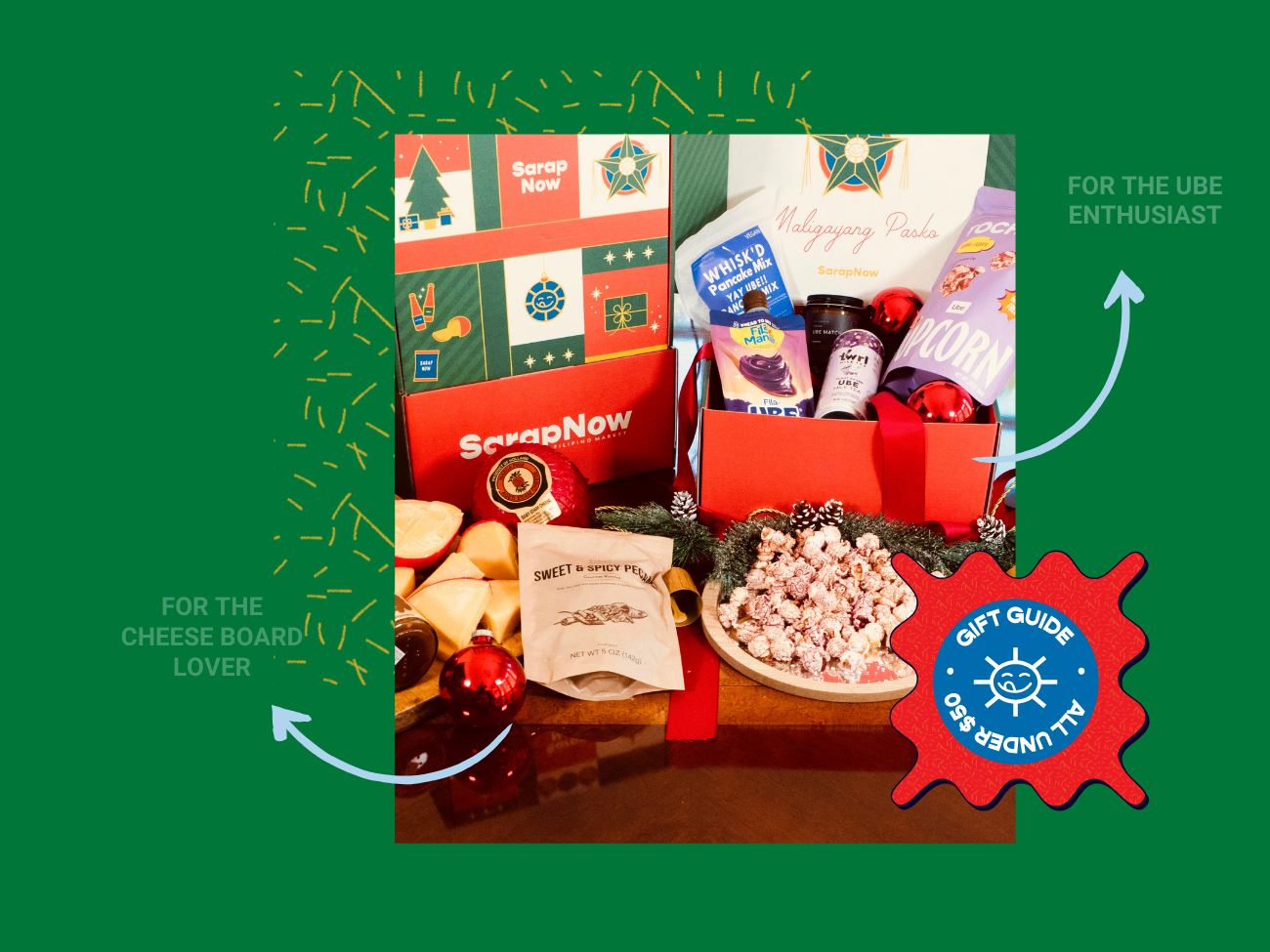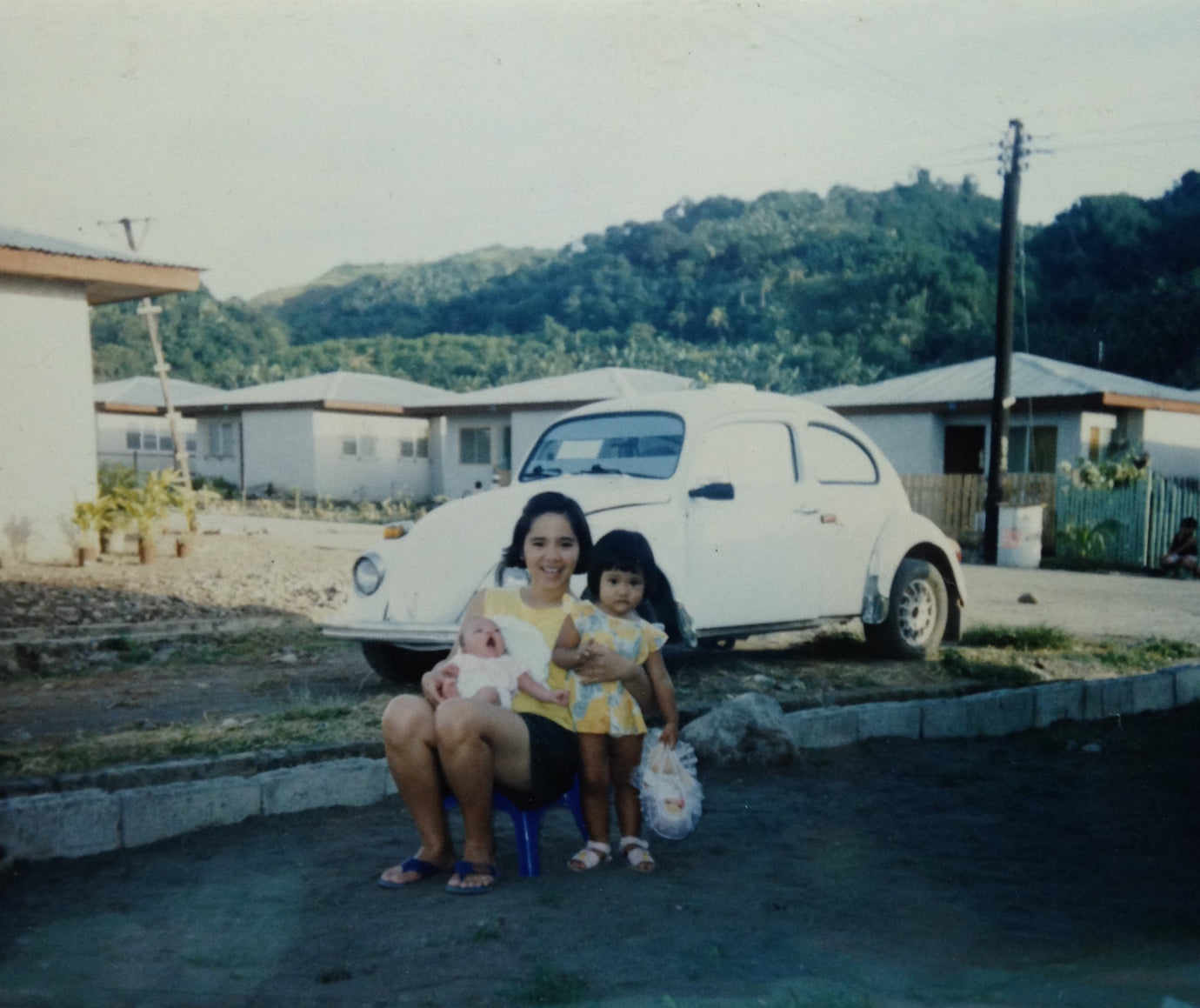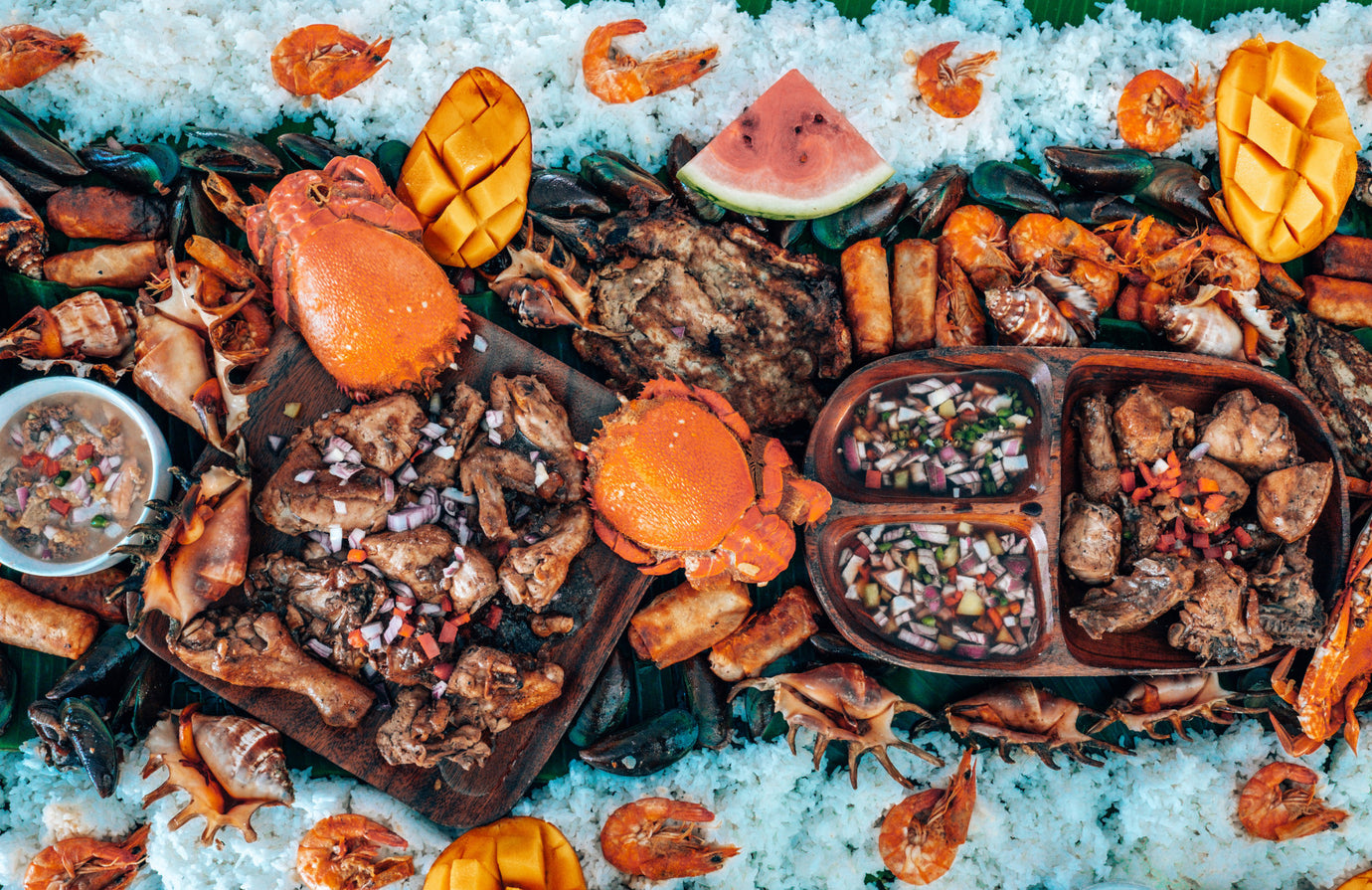By Danielle Muzones
Welcome to Sarap Stories - your space for Asian American representation, inspiration, and insights from real AAPI makers in the Sarap Now marketplace.

Source: Evan Lessler
Evan Lessler, the CEO and Creative Director of Adapt, spent his childhood in San Francisco’s Chinatown. On Sundays, he went to church service, played basketball with friends, and stocked up on Haw Flakes, a round, tart candy made with Chinese hawthorn fruit.
He never thought that one day his designs would cover every seat at the Chase Center - less than 20 minutes away. During last year’s playoff season, you couldn’t miss his Gold Blooded shirts on Golden State Warriors fans and the 2022 champions themselves: Steph Curry, Klay Thompson, Draymond Green, Jordan Poole, and more.
The journey there wasn’t easy, but he stayed focused.
How did Evan do it? Read on for his takeaways on starting a business and why representation matters. He shares his experience growing up mixed-race, pivoting from failures, and battling cancer while building a brand.
This interview has been edited for length and clarity.
Tell us about yourself - your name, pronouns, and brand. Do you identify as AAPI or an immigrant of Asian heritage?
My name is Evan Lessler, my pronouns are he/him, and I started Adapt Clothing in 2003. I identify as AAPI or Chinese American, but I’m a mix. My Mom is Chinese and my Dad is of Jewish heritage with some kind of European background. On my Mom’s side, my Poi-poi, or Grandma, was born in China and my Gung-Gung, or Grandpa, was born here in the U.S.
My Grandfather was a pastor at the Chinese Baptist Church in San Francisco’s Chinatown, so that community was a big part of my upbringing. Every Sunday, we’d drive to San Francisco and go to service with all my Aunties and Uncles, and hang out all day in the city. I’d get food with friends, go shopping in Union Square, and play basketball. Those are some of my favorite memories.

Source: Evan Lessler
What was your experience like growing up in America?
I grew up in Fairfield, about an hour northeast of San Francisco. It was pretty diverse but there weren’t a lot of Asians. I remember my parents always checking on me and my brother to make sure we weren’t getting teased for being mixed. I think they were sensitive to that because of their own experiences as a mixed-race couple, which was pretty unusual at the time. It made me aware that I was different somehow.
When I was growing up, my Mom would make me a thermos of Jook, rice porridge, or Lap Cheong, which is a Chinese sausage. Kids would be like, “What is that?” or “That’s gross,” so yeah, I’d feel ashamed about it.
At times, I felt like I had two separate lives with two sets of friends. I was in Fairfield for six days a week and then I’d go to Church on Sunday and have a completely different experience. I’d say both sides were positive and made me who I am, but I always wondered why it had to be that way.

Source: Evan Lessler
Do you remember the first time you felt represented in the fashion industry? Tell us about those memories and what they meant to you.
In high school, I was already into fashion, but I also got into skating and snowboarding. That’s when I found the brand Alphanumeric. I thought the clothes were so cool and I remember they had magazine ads that featured Asian and Black skaters, and a whole diverse group of people. I never really saw that done before.
I later learned that the designer is part Cherokee, African-American and European. That really stuck with me because I didn’t know a lot of mixed-race people at the time. The example that brand set for me was one of the main drivers for me to even want to start a clothing brand of my own.
AAPI representation matters. Why does it matter to you? What do you think needs to happen to make more progress with representation?
It’s extremely important. I started a clothing brand because I was inspired by a guy who represented me. He was mixed, an amalgamation of cultures, just like me. If you don't have that example, it's hard to see yourself making it in whatever you want to do.
In terms of how to make more progress, we need to be confident in what we have to offer the world. Just bring it out there and don’t be afraid to say, “Hey, this is important.”
My experience is the product of taking that chance. Everything I do with Adapt is related to my life, my proclivities, and my interests - it’s me in a clothing representation.
It's also a collective effort - the more we all push to get ourselves out there, the more examples we’ll set for people who come after us.

Source: Evan Lessler
When did you end up starting Adapt?
I started the brand while I was at U.C. Davis. I was studying fashion at first and then switched to graphic design. The interesting thing is that I don’t know how to sew. When we started sewing classes, I realized I was just not good at it. I’d say I’m a graphic designer first and I use clothing as my medium, like T-shirts and hoodies.
Right out of college, I had corporate jobs and built the brand in tandem. I worked at a company called CNET, a tech review site, for a year, and then I went to Apple as a designer. Eventually, I left Apple to do Adapt full-time.
Deciding to be a full-time entrepreneur was huge. It was scary, but at that point, I knew I was ready to go for it. Even one day in the office felt like it was taking away from time I could have been talking to a wholesaler or going to a store. I was so excited about the brand.
Do you have any tips for aspiring AAPI makers who want to start their own business?
Be confident and keep at it.
If you feel strongly about starting a business, go for it. I believe that anyone can be successful as long as they’re actually passionate about what they’re doing and can back it up with their ability and own force of will.
For example, when I made the first Gold Blooded designs in 2011, it was just a catchy idea in my head. It was pretty popular right out of the gate, so I just kept pushing it and pushing it and pushing it. Eventually, it became this thing in the zeitgeist, to the point where we had the opportunity to officially partner with the Golden State Warriors for the 2022 playoffs. To put the icing on the cake, they actually won the whole thing! It was definitely one of the most satisfying things that I’ve done in 20 years with the brand.
Allow yourself to fail and try again.
I’ve tried ventures that have failed. I’ve done an offshoot brand for women and I thought it was gonna be so cool. The reality was that it just didn't sell, so I stopped and pivoted. To find your purpose, you have to keep trying new things until you find what works. It’s okay if it doesn’t work at first - as long as you’re trying something, that’s great. Go for what you want to do, and be realistic about the process.
Use your resources.
Right now, there are so many tools to start a business in any industry. It was different in 2003. There was no handbook on how to start an independent clothing brand, and I had to figure it out. But now there are so many step-by-step guides for getting started in any industry and communities of people who want to help, like the Asian Hustle Network, all at your fingertips.
What advice would you give to a younger version of yourself?
Be open to making connections.
A big mistake that I made early on was just doing my own thing. I could have saved a lot of stress and heartache if I had been more proactive about connecting with people in the industry. Try to reach out to people, find different resources, or work with a mentor. Building these bridges will make your life a lot easier, especially at the start, and they’ll usually open doors for you later on.
Don’t sweat the small stuff.
For the most part, I tried not to be bothered by the little snafus in the business or tiffs with other people. It’s more important to focus your time and energy on your goal. This became especially relevant around the start of 2016. I was in my early 30s and at my prime — then I was diagnosed with cancer.
Cancer is one of those awful things you don’t really think about until it happens to you or someone you know. When you’re faced with the possibility of “Hey, I could not be here in a year,” it totally changes your outlook. You shake off all those little things. It was a frustrating experience, but I overcame it. It was a net positive in the end because of the mental shifts I had.
What was your favorite childhood snack?
A big one for me was Haw Flakes. They’re this round plum candy that came in these packs of 10 little disks. We’d buy 'em in Chinatown for 99 cents. I actually took them back to Fairfield and started my first little business selling them to my friends. Oh man, I love Haw Flakes.
What’s next for you? Is there anything else you want to share?
I wrote a memoir that’s coming out in May. It’s about my life, yeah, but really it’s about growing up and finding your own path. Pre-orders start in April.
Otherwise, we’re always putting stuff out. Follow @Adapt on Instagram, Twitter and Facebook to see the latest.
Check out Adapt in the Sarap Now marketplace

Source: Rolando Ramirez, @roloedolo
Take a look at our limited-edition T-shirt collab with Adapt that calls for more AAPI representation.
Get 15% off yours when you order on our app (Apple or Google Play) for a limited time only.

